| City/Town: • American Beach |
| Location Class: • Commercial |
| Built: • 1948 | Abandoned: • 2000 |
| Historic Designation: • National Register of Historic Places (2004) • African American Heritage Site |
| Status: • Abandoned |
| Photojournalist: • David Bulit |
Table of Contents
American Beach
Evans Rendezvous was a well-known African-American nightclub located on American Beach, a historic coastal community that gained popularity among African American vacationers in the 1930s, 40s, and 50s. Before Abraham Lincoln Lewis came along, black Americans were barred from public beaches along Florida’s shoreline. Facing discrimination from white-owned insurance companies, A.L. Lewis saw an opportunity and became Florida’s first black millionaire by founding the Afro-American Life Insurance Company, establishing insurance services tailored for Black Americans.
In 1935, the Jacksonville Afro-American Life Insurance Company purchased 33 acres of beachfront property on Amelia Island in Fernandina Beach, Florida. Lewis extended an invitation to company employees to enjoy the beach, organizing outings for families and churches. Through subsequent land acquisitions, American Beach expanded to over 216 acres, providing African Americans a place for “Recreation and Relaxation Without Humiliation.”
The beach offered various activities such as surf fishing, shell gathering, beauty contests, and automobile races, all amidst the warmth of friendly camaraderie. Vendors dotted the shore, offering ice cream, candies, sodas, and other treats to children enjoying the beach.
The first house on American Beach was built for Lewis at 5466 Gregg Street. The second house was erected in 1938 just a few houses north by Afro-American Life Insurance Company executive Louis Dargan Ervin. Further development occurred for the next few years including the erection of several homes and cottages, hotels, and of course, Evans Rendezvous.
Evans Rendezvous
Willie Evans, the son of Virgil and Maude Dixon Evans, was born in Orangeburg, South Carolina, on August 5, 1915. In the 1930s, Willie worked with the Civilian Conservation Corps before enlisting in the U.S. Army in 1942. While serving as a cook during World War II, Evans gained the skills and experience that would help him later in life. While stationed at a base in Georgia, he would go to American Beach and got the idea to open a business there. After returning from service, Evans bought property next to the home of American Beach founder A. L. Lewis with military pay he had saved up and opened Sunny’s Spot.
Lewis offered Evans a piece of property a few houses south of his own in exchange for Sunny’s Spot. Evans agreed and operated out of a small building for two years before opening Evans’ Ocean Rendezvous in 1948. This 200-seat establishment featured a long beachfront porch that served food and drinks and provided musical entertainment and dancing.

Many famous entertainers such as Billie Daniels, Ray Charles, Cab Calloway, Billy Eckstein, and Duke Ellington performed at the nightclub. After one of his Florida theater shows in Jacksonville, Elvis sang gospel with the house band.
James Brown was turned away from the Rendezvous due to his support and endorsement of Republican President Richard Nixon. Black organizations boycotted his records and protested at his concert shows; a November 1972 show in Cincinnati was picketed with signs saying, “James Brown: Nixon’s Clown.” Similarly, Sammy Davis Jr. was also barred from entry after the highly televised hug he gave Nixon at a rally at the Miami Marine Stadium, and his continued support thereafter.
In 1962, the Evans Hotel opened next door to the Rendezvous. After nearly forty successful years, Evans sold the Rendezvous in 1980. He passed away on August 9, 1996, at the age of 81.

Preservation Work
In 1964, Hurricane Dora destroyed many structures at American Beach. Today, American Beach is half the size it used to be. While operations continued into the late 1990s, the heyday of the Rendezvous ended with the passage of the Civil Rights Act, which opened up previously Whites-only establishments and beaches, and the destruction wrought by Hurricane Dora. Evans Rendezvous closed in 2000 after 50 years of service.
A. L. Lewis’ great-granddaughter MaVynee Oshun Betsch, known to locals as the “Beach Lady,” returned to American Beach in 1977 to fight for its preservation. For years she planted trees along Lewis Street, offered historical tours of the beach, and fought to raise public awareness of the beach and its struggle. She wanted to make American Beach a monument to black Americans’ determination to overcome the obstacles of the Jim Crow era.

MaVynee Oshun Betsch, who was known locally as “the Beach Lady.”
American Beach is listed as a historic site on the National Register of Historic Places. Nassau County acquired the property in 2004 through a partnership with the state and the Trust for Public Land. No work to preserve the structure, other than sealing the building from the public, until nearly 20 years later when an African-American Cultural and Historical Grant funded through the Florida Department of State was approved by the Nassau County Board of County Commissioners.
The $500,000 grant is earmarked for a new HVAC system, electrical work and basic electrical fixtures, plumbing and basic plumbing fixtures, a fire suppression system, insulation, new doors and windows, and drywall. The work also includes architectural and engineering services, floor repairs, and repainting and weatherproofing the exterior walls.
You can read about Evans Rendezvous and many other abandoned places in my books, Abandoned Jacksonville: Remnants of the River City and Abandoned Jacksonville: Ruins of the First Coast.

















